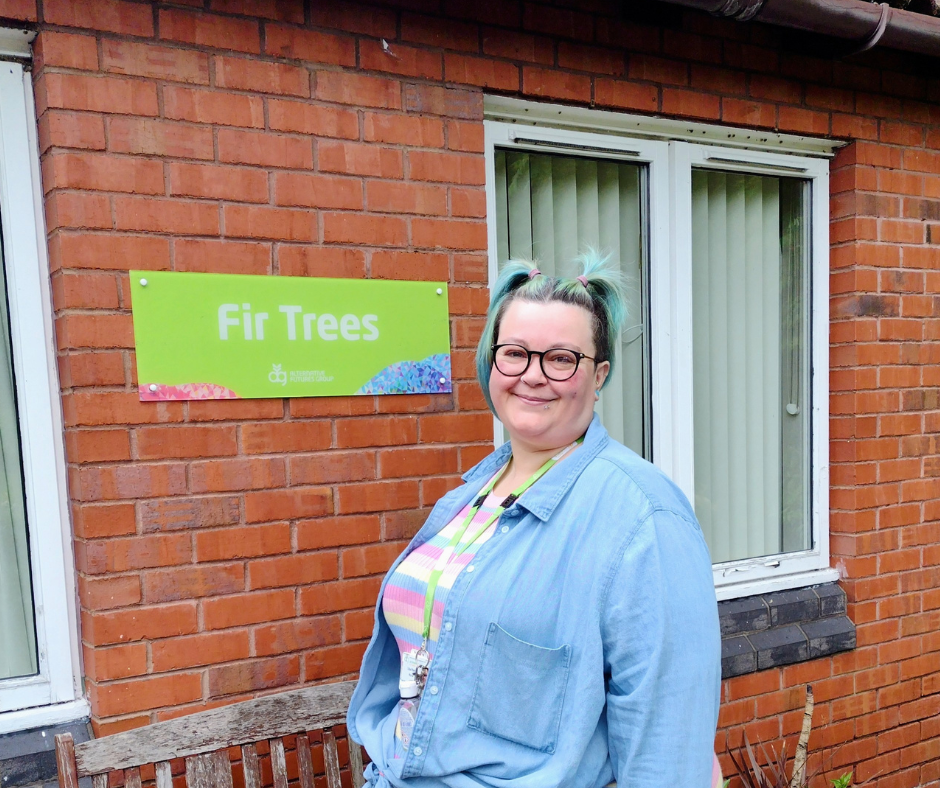Lisa Peet started working at our independent hospital in Wigan as a Support Worker in 2011 and is now in a leadership role as a Senior Nurse Practitioner.
On International Nurses Day she is sharing her journey, why she is passionate about working in community rehabilitation, and her advice for new nurses.
How did you progress from Support Worker to Senior Nurse Practitioner?
I studied criminology and sociology at university and wasn’t sure what I wanted to do next. I saw a role as a Support Worker at AFG come up and went for it as I’ve always wanted to work with people. I loved it pretty much immediately. It’s a great environment to work with and the team were so supportive and friendly.
I saw AFG were offering Support Workers the opportunity to complete a postgraduate certificate in psychosocial interventions, so I went for it. That involved going to the University of Central Lancaster one day a week for a year while I continued in my role at the hospital.
My course tutor suggested that I do a master’s degree in nursing, and by this time I knew this was the path I wanted to take. Three years and a lot of hard work later, I was qualified!
I worked on acute wards for five months (there were no vacancies at the hospital at the time) but as soon as a Registered Mental Health Nurse role at AFG came up I went for it because I knew that community rehabilitation was what I wanted to do.
I did this role for just under four years and then the Senior Nurse Practitioner vacancy came up. It felt like a natural progression, and to boost my confidence even more, the entire team encouraged me to go for it! I am now three months in and loving it.
What do you enjoy about working in community rehabilitation?
Patients spend longer in the rehabilitation setting than they do on acute wards, which gives you time to build a real understanding and develop a therapeutic relationship.
You understand the dynamics of the different aspects of their life and provide holistic support – for example by involving and working with their families to ensure they are understanding of their condition and can support them.
It is amazing to see a person’s progression from when they are first admitted to the hospital to when they are ready for discharge and to be part of the team that supports them in that journey.
What do you love about your new role?
I’m enjoying getting to grips with the new challenges that come with line management, learning new processes, overseeing all clinical work carried out by the nursing team, conducting assessments for new referrals into the hospital, and so on.
One of my recent referrals was a woman who had been diagnosed with bi-polar and her anxiety as part of this was taking over her life – she didn’t feel able to walk her son to school which made her feel like a failure as a mum. She was admitted to the hospital and our team have supported her to understand her condition and how it impacts her. Seeing her progress has been amazing – she is now going out to the local shop, to GP appointments on the bus, and she set herself the task of walking her son to school which she achieved last week.
When she was admitted she described the hospital as her ‘safe haven’ and did not want to leave, and now she is ready to go home, live her life and spend time with her son, which is amazing.
What is your advice for newly qualified/student nurses on International Nurses Day?
Nursing can be challenging and overwhelming, but the payoff is always worth it. Having a job where you get make a real impact in people’s lives is like nothing else, so remember that when things get tough!
